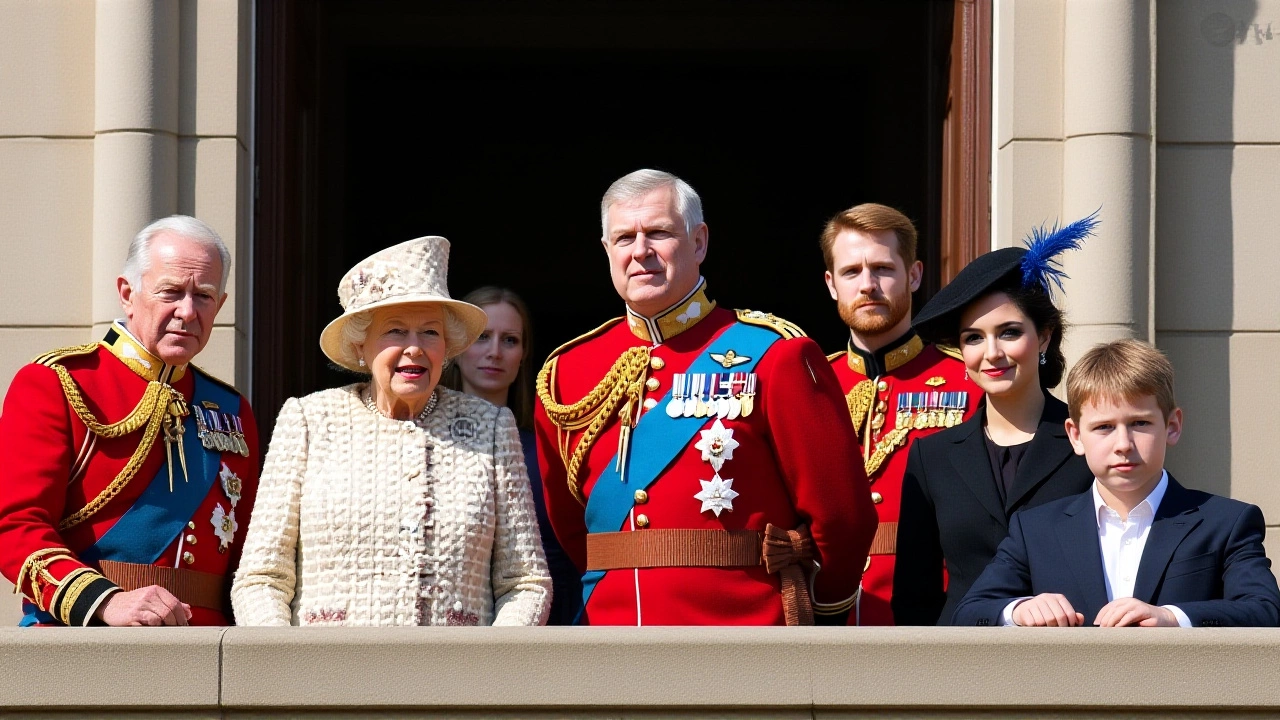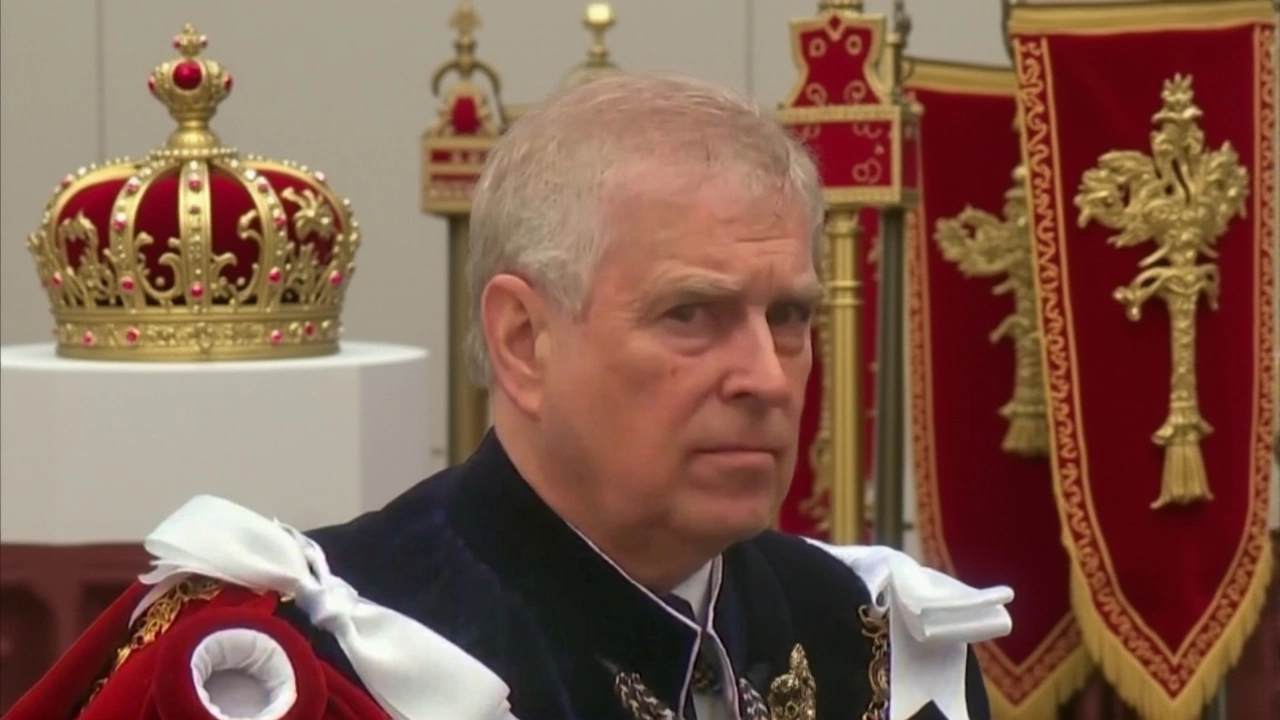When Prince Andrew, Duke of York announced on that he was giving up every royal title and military appointment, the United Kingdom felt a shock that echoed through palaces and newsrooms alike.
The statement, released by Buckingham Palace at 09:48 UTC, made clear the move was not a solo decision. After "discussions with the king and his family" – namely King Charles III – the duke said he was putting his "duty, family and country first".
Historical Context and the Road to This Day
Prince Andrew’s troubles date back to the late 1990s. His friendship with convicted financier Jeffrey Epstein put a permanent spotlight on the royal family. A 2010 visit to Epstein’s Manhattan townhouse and a later helicopter ride to the private island in the U.S. Virgin Islands sparked media firestorms that never fully died out.
In March 2019, after the BBC Newsnight interview that was widely panned, the duke stepped back from public duties. A year later, on May 23 2020, he formally suspended his royal engagements. Those steps were already a departure from tradition; the October 2025 announcement is unprecedented.
The Announcement Details
ABC News Europe Bureau Chief Mazzoi Ford broke the news at 11:48 UTC, confirming the palace’s press release and emphasizing the collective nature of the decision. "The statement goes on to say… we have concluded… I must now take this extra step," Ford reported, underscoring that the king, Prince William and Prince Harry were all in the loop.
The duke’s military affiliations – Colonel of the Grenadier Guards, Captain General of the Royal Naval Reserves, and honorary Air Commodore of RAF Lossiemouth – were listed for rescission. All had been held since 2015, making the loss both symbolic and financially significant.
Security and Legal Backdrop
Britain’s domestic intelligence agency, MI5, opened a counter‑intelligence probe in 2019 after discovering that Andrew had facilitated contact between a Chinese Ministry of State Security operative and British business leaders in 2011. The 2022 MI5 assessment labeled the encounter a "significant counter‑intelligence vulnerability," fueling whispers that national security concerns were as much a factor as the Epstein scandal.
On the legal front, civil‑lawyer Virginia Giuffre sued the duke for $15 million in Manhattan. The case settled in February 2022, but the lingering media coverage kept the issue in the public eye and, according to palace insiders, distracted the monarch from his constitutional duties.

Reactions Across the Kingdom
Public opinion, measured by a YouGov poll in June 2022, showed 68 % of UK adults disapproved of Andrew’s continued public role. The poll’s timing—shortly after his appearance at the Queen’s Platinum Jubilee—illustrates how the royal family’s image had already been bruised.
In Westminster, Labour MP Angela Rayner called the move "a necessary step to preserve the integrity of the Crown," while Conservative backbencher Sir Michael Gove warned that the monarchy must act decisively "to prevent further erosion of public trust."
Within the royal household, insiders say the decision was framed as a "family matter" to avoid a protracted parliamentary debate. The palace confirmed that Andrew will be removed from the Privy Council, lose access to Sovereign Grant funding, and drop out of the line of succession—he now sits ninth, behind Prince George of Wales.
Implications for the Monarchy
- Constitutional precedent: The last voluntary surrender of titles occurred during the 1936 abdication crisis, but that involved the throne itself. Andrew’s case is the first where a working royal voluntarily gave up all state‑conferred honors.
- Financial impact: With the loss of the Sovereign Grant allocation for his household, the duke’s private finances will now rely solely on personal wealth and any retained estates.
- Security considerations: The removal may simplify MI5’s monitoring requirements, as the duke will no longer hold official diplomatic or military posts.

What Comes Next?
The palace says formal letters patent will be issued within the next 30 days, sealing the transition. Analysts at Oxford Analytica predict the move could stabilize the monarchy’s public standing ahead of the next royal tour of the Commonwealth in 2026.
For Prince Andrew, the future is uncertain. Without a royal title, he may focus on charitable work abroad or retreat entirely from public life. Whatever path he chooses, the decision marks a turning point in modern British royalty.
Frequently Asked Questions
How does Prince Andrew’s resignation affect the line of succession?
Andrew was ninth in line, behind Prince George, Princess Charlotte and Prince Louis. By relinquishing his titles, he is automatically removed from the succession list, so the order now skips from Prince Harry to the next eligible descendant, maintaining the same overall sequence.
Will the duke lose all his private property and wealth?
No. The forfeiture only covers state‑conferred honors, military appointments and the Sovereign Grant. Personal assets, estates owned before his marriage, and any private investments remain his to manage.
What role did MI5’s counter‑intelligence findings play in the decision?
MI5’s 2022 assessment flagged a meeting Andrew arranged with a Ministry of State Security operative as a "significant vulnerability." While the palace has not disclosed the full weight of the security concerns, officials say the findings added pressure to remove any official capacity that could compromise national security.
How will the public’s perception of the monarchy change after this move?
Early polls suggest a modest boost in confidence, as the royal family appears willing to take decisive action. However, long‑term effects will depend on how the palace manages future scandals and whether the move is seen as genuine accountability or a calculated PR tactic.
When will the official paperwork be finalized?
A spokesperson for Buckingham Palace confirmed that letters patent will be signed and published within 30 days of the October 18 announcement, making the changes legally binding.



